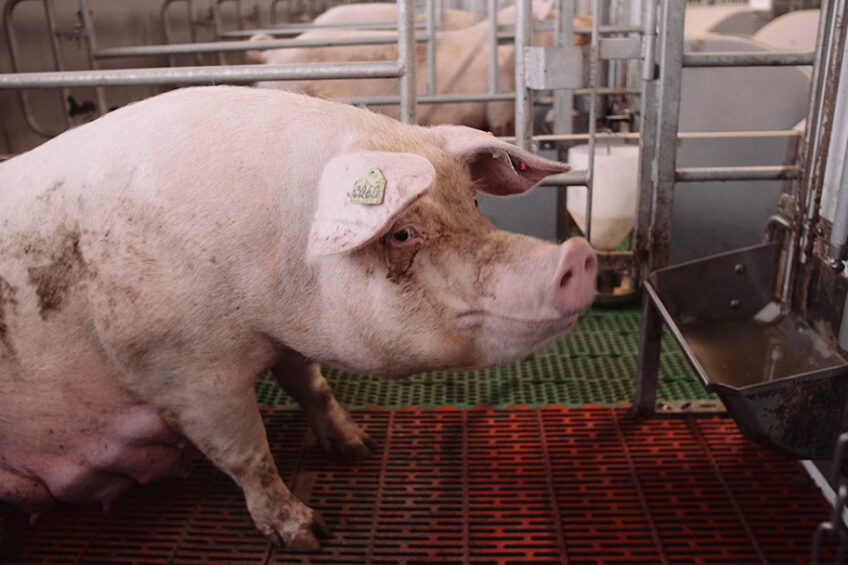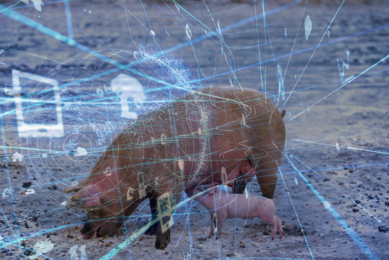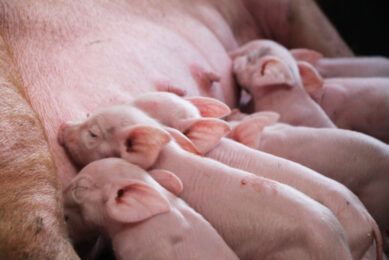4 tips on how to get better results during farrowing

These days, it is difficult to find and retain qualified farm staff. Automation could be part of the solution – one that could also bring a positive contribution to farm results. With these tips, the results in the farrowing pen will increase without costing extra labour.
Most sow farmers would agree: profits can be made in the farrowing pen. It is the unit that requires the most care, but is also where the biggest difference can be made in operating results. Research has shown that a higher feed intake in the farrowing pen leads to a higher milk yield, higher weaning weights and better condition maintenance. A sow that maintains her condition will produce more mature eggs and have a larger litter in the next parity. Hence it is important to stimulate sow feed intake in the farrowing pen, even on warm days.
 Feeding at various points through the day
Feeding at various points through the day
Around farrowing, total sow feed intake is limited and it is sufficient to feed twice a day. However, towards the peak of lactation, the nutrient requirement increases sharply and the total feed consumption could reach up to 9 kg/day. By dividing this over four, five or even more feeding sessions, sows are stimulated to take in more feed.
 Feeding in smaller portions
Feeding in smaller portions
Feed left in the trough for too long is less tasty. Additionally, at high temperatures there is a risk of mould and spoilage. By offering the feed in small portions of 100 g per feeding, it remains fresh and tasty and the sow is less satiated, stimulating total feed intake. An additional advantage is that it also prevents feed waste, which is better for feed costs and less work in emptying bins.
 Small-step increase in the feeding schedule
Small-step increase in the feeding schedule
If a sow gets 1.0 kg or even 0.5 kg more feed from one day to the next, there is a chance she will not cope with that. It is better to increase the feeding schedule in small steps every day. That way it’s easier to monitor whether she has finished her portion and avoid a yo-yo effect.
 Feeding at cooler times of the day
Feeding at cooler times of the day
Especially in the summer months, sow feed intake is under pressure. They come out of the farrowing pen in poorer condition and are more difficult to get into heat. Weaning weights are also often disappointing. By feeding at cooler times of the day – taking into account tips 1 and 2 – sows absorb the diet’s nutrients better.
Implementation in practice
Implementing these tips is easier said than done, as doing so manually is time-consuming and may be inconvenient. This can be overcome by automating farrowing feeding with, for example, a system such as Nedap Farrowing Feeding. Under the dispenser hangs a motorised auger, dosing rations with “snackable” feed portions at a predetermined rate. Every day, sows receive the amount of feed according to the entered feeding schedule. The daily ration is divided over the number of desired feeding times, and the feeding times are set automatically in advance.
An option with the feeding system is a wireless activator, allowing sows to request a new portion of feed by touching the activator with their noses until the feed for that feeding is finished. If a sow has not touched the activator for some time, an alarm is sent to the producer.
The system provides information about each sow through a smartphone app, offering data, insight and the ability to adjust the feeding schedule. Automated feeding in the farrowing pen thus leads to more control over the reproduction process, better results and higher labour efficiency.
Authors:
Edwin Vogels, application specialist and José Simeone, sales & account manager, Nedap











